|
ID |
Nickname |
Country / City |
Languages |
Taxonomies |
Comment |
Project / Group |
Map |
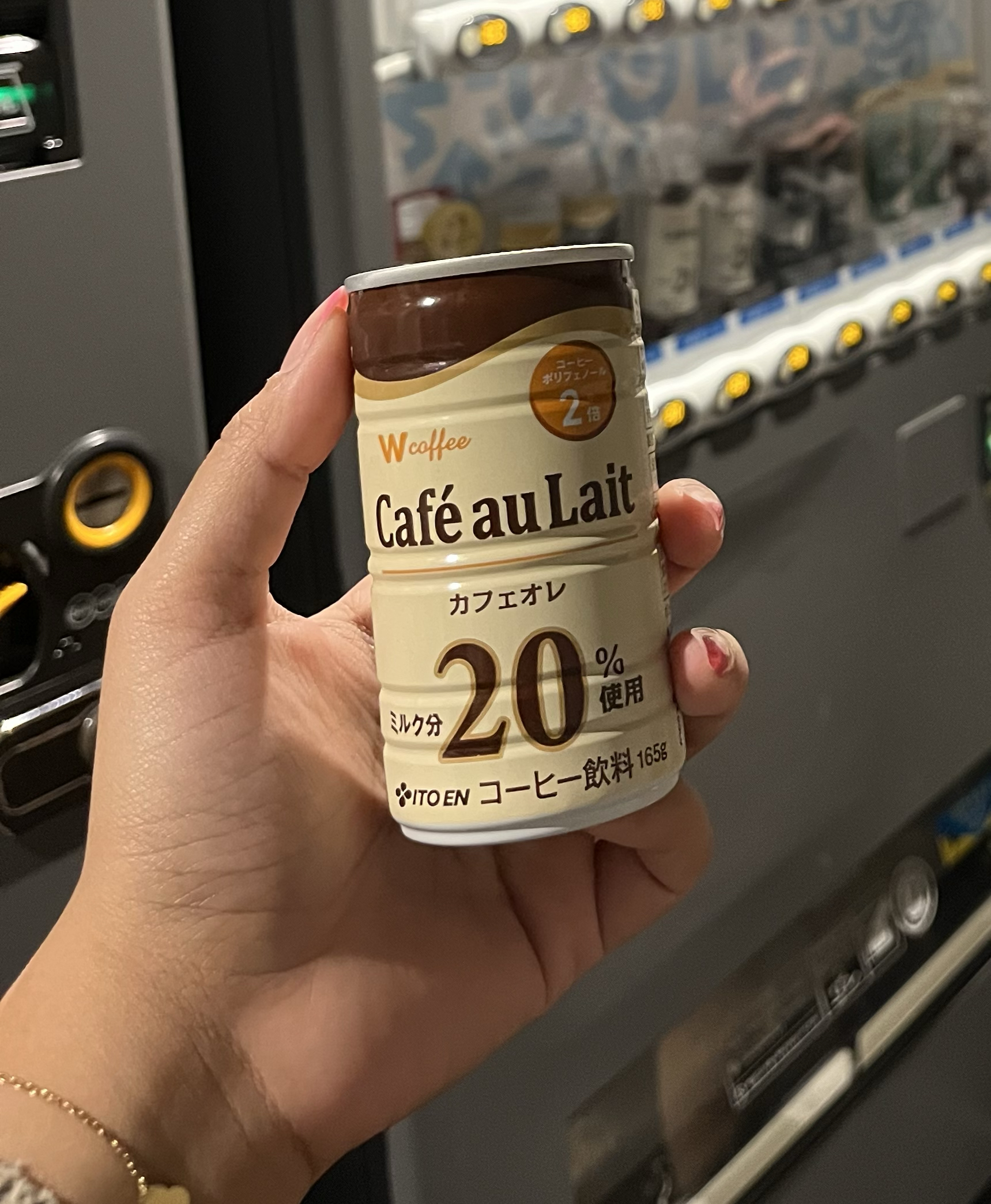
|
134342
|
charrr
|
United States
Honolulu
|
|
|
Encountering a Japanese vending machine, I noticed that it had both Japanese and English on it. Noticing that it had both scripts, it made me realize how ingrained multilingualism is to our state and island. Not only does this serve the local community, but for tourists who can enjoy a bit of their culture here. Seeing just how often and frequently it is to have both Japanese and English script, and basically how normalized it is to have multiple languages in this state, made me aware of how this our public language and how valuable it is to create an inclusive, multilingual environment for everyone.
|
Multilingual Hawaiʻi
|
|
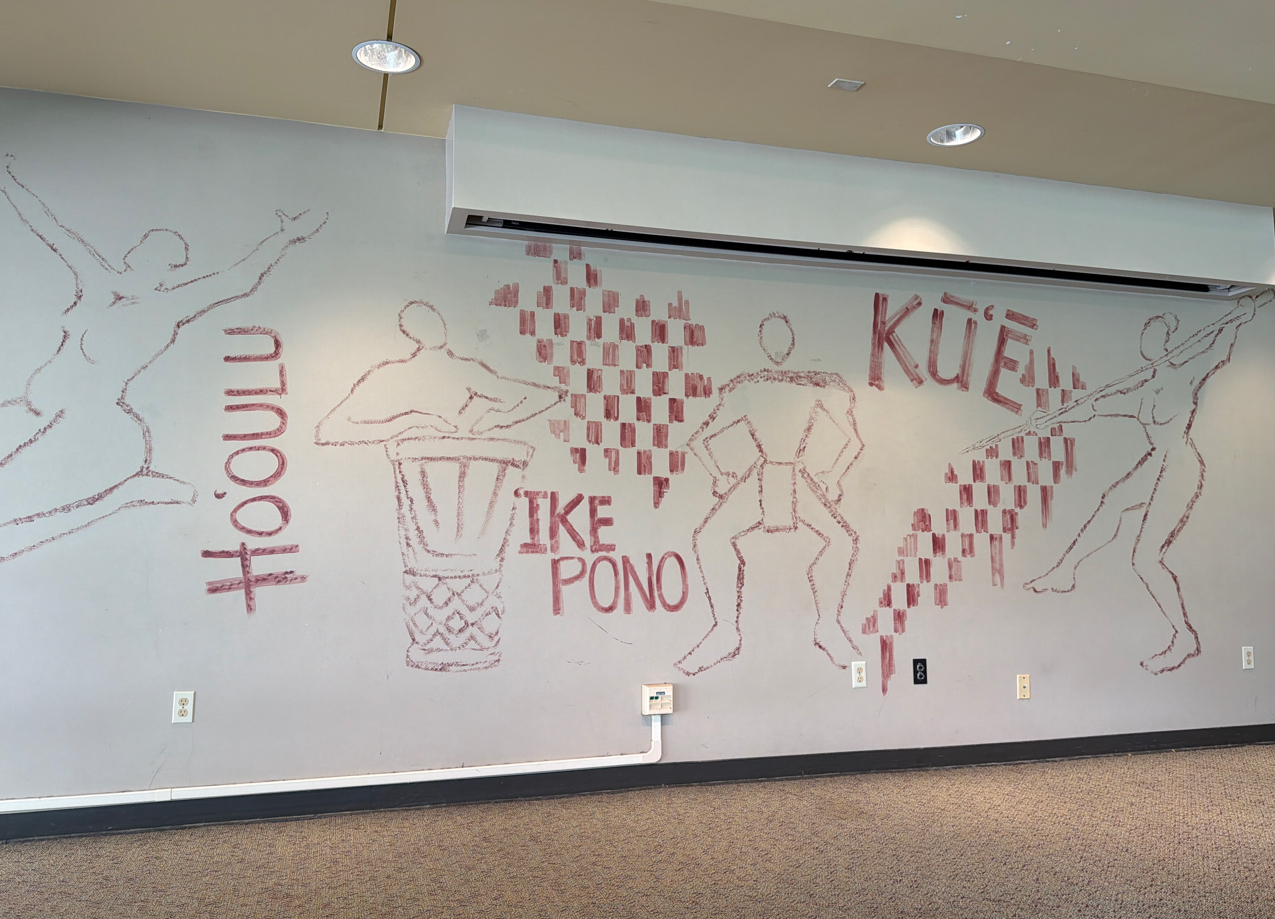
|
147910
|
remy
|
United States
Honolulu
|
|
|
‘Ōlelo Hawai’i
|
Multilingual Hawaiʻi
|
|
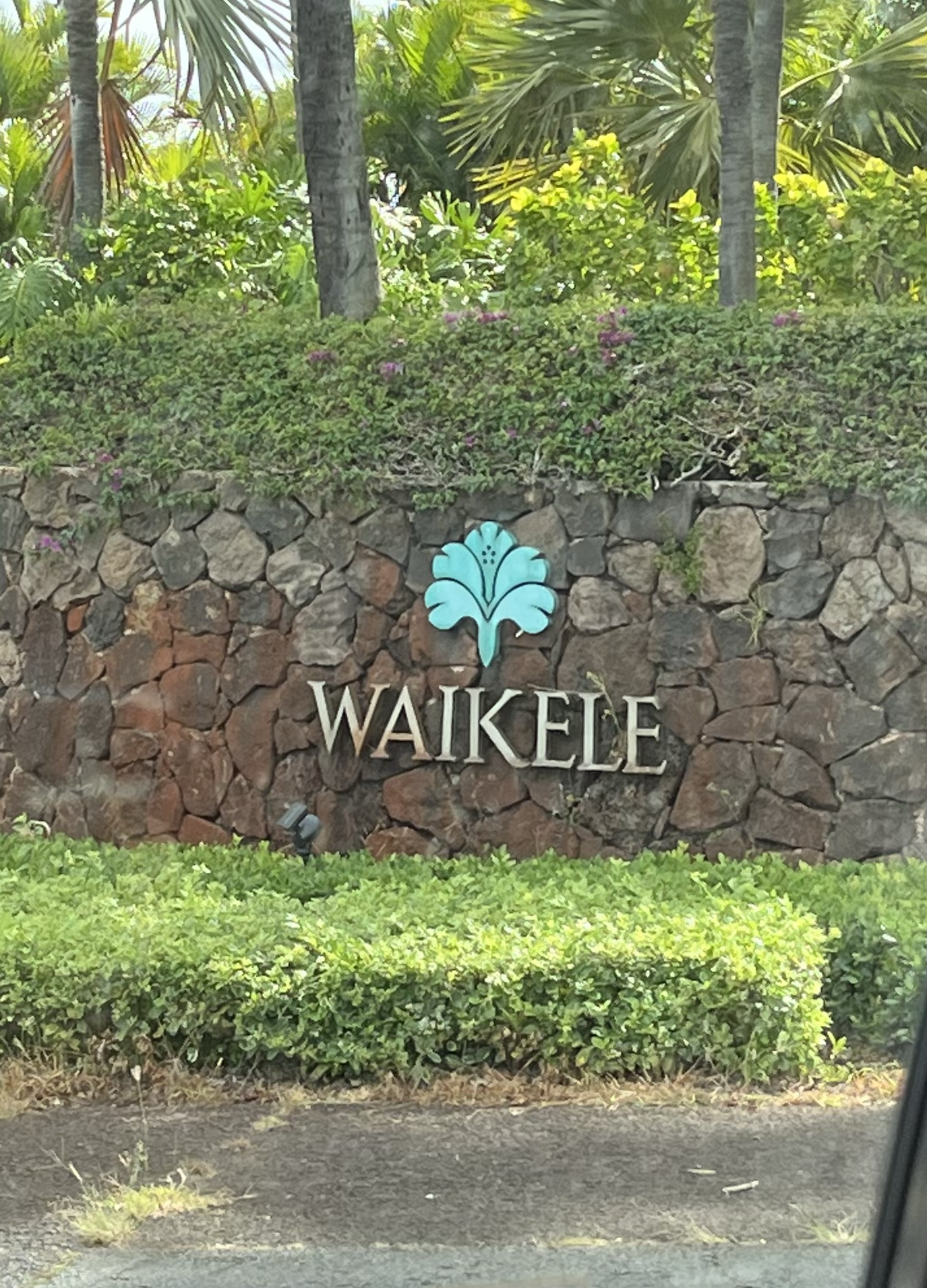
|
134343
|
charrr
|
United States
Waipahu
|
|
|
Seeing place names like Waikele, really emphasizes how important the Hawaiian language is to our culture. As you grow up, the norm becomes something that can be hidden in plain sight, or something that most people overlook, despite it being in our everyday language. However, as we think about multilingualism and think about the connection of the Hawaiian language and how it can shift our culture and communication, we can then use our town names as markers for history, culture, and diversity. We can view this public language as a way to honor the past and encourage language revitalization everyday.
|
Multilingual Hawaiʻi
|
|

|
47303
|
|
United States
Honolulu
|
|
|
GM EXTRA CREDIT- This poster was in one of the freshman towers. The poster says Ka Papa Lo’I ‘O Kānewai - on one of the pages of the history, it states that it is piko for Hawaiian knowledge at the University of Hawaii at Manoa sitting at the bottom of the slopes of Wa’ahila. I believe that they were trying to educate us students about the topic and just made this posted to get more information out about it!
|
Multilingual Hawaiʻi
|
|
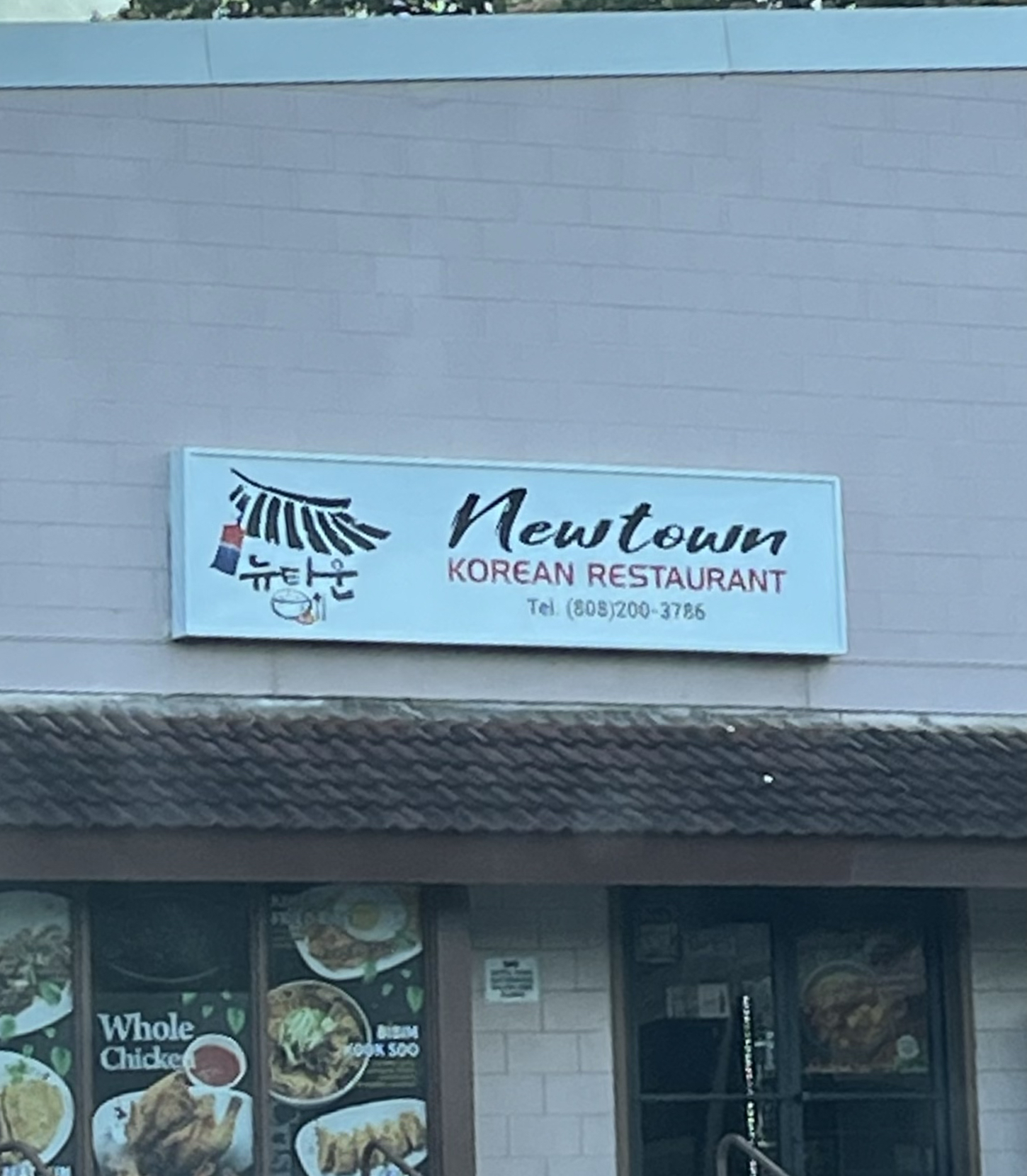
|
134344
|
charrr
|
United States
Aiea
|
|
|
Walking past this town that had a sign in both Korean and English, made me aware of how multilingualism is a daily part of life when living in Hawai’i. As I continue to reflect about the different languages in Hawai’i, it made me realize how much of a melting pot our community is. It had the Korean language big and broad, showing that even in such an environment, these languages are the norm and are here to stay. Recognizing multilingualism in public spaces like this, is another way that language can connect others in a meaningful way, and expand across cultures.
|
Multilingual Hawaiʻi
|
|

|
47304
|
|
United States
Honolulu
|
|
|
GM EXTRA CREDIT I was passing and saw this which says Maluna A’e O na Lahui Apau Ke ola ke kanaka which means - I tried finding what it meant but I only found out that it might mean something about being UH’s the moto. It means “above all nations is humanity”. The UH website explained the meaning - there is a couple of motos that they explain. It was placed on a cement barrier/bench, it has been there for some time.
|
Multilingual Hawaiʻi
|
|
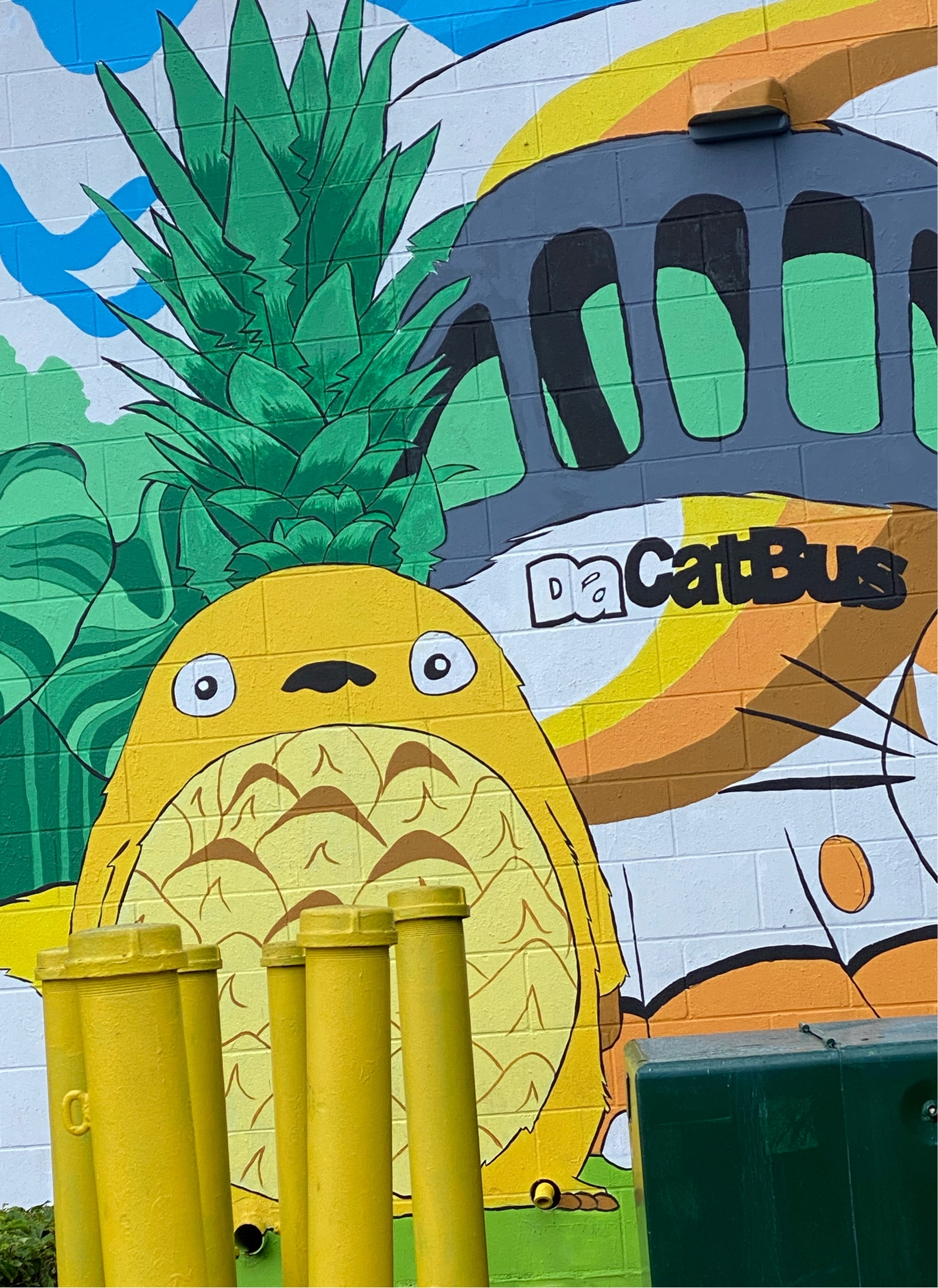
|
38346
|
|
United States
Honolulu
|
|
|
—
|
Multilingual Hawaiʻi
|
|
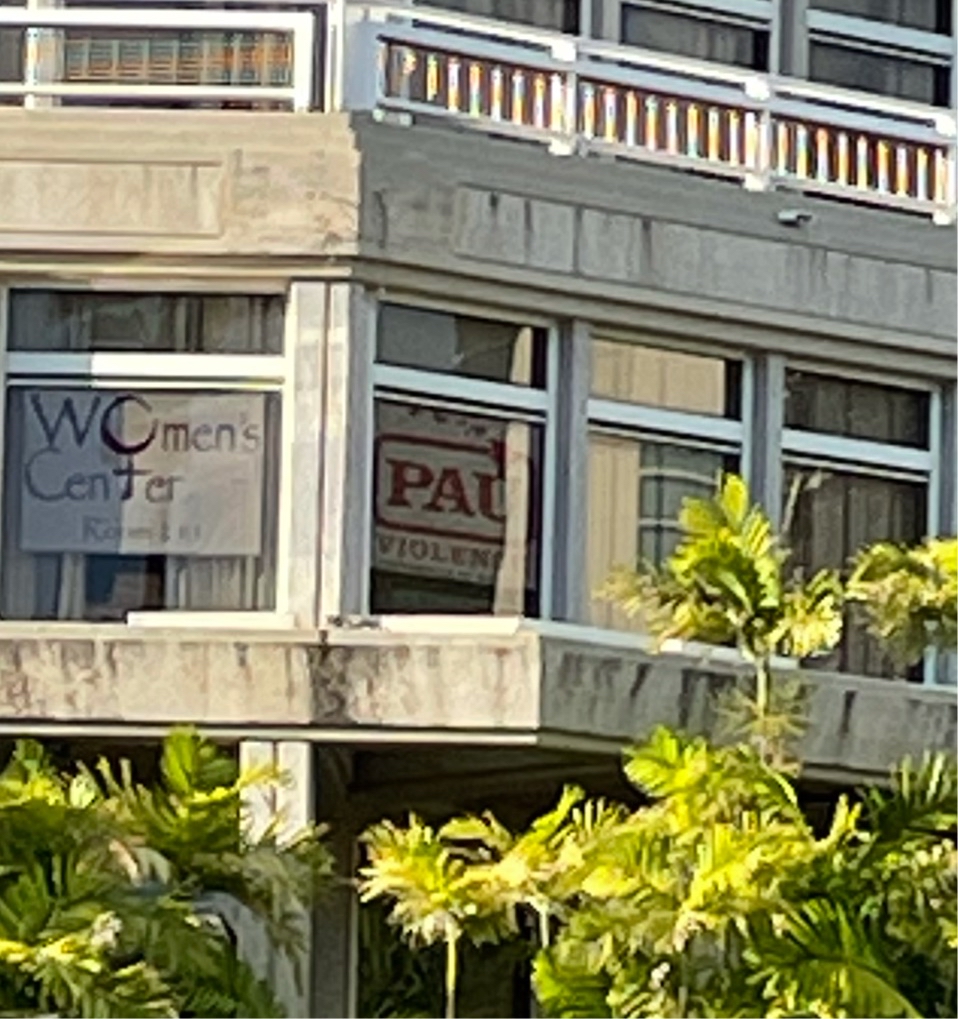
|
46538
|
|
United States
Honolulu
|
|
|
(SP) (Check in #3) though a bit hard to get a picture of, this is a semi-permanent vinyl window sign on a building on the UH Manoa campus, in the domain of student life/education. It uses the Pidgin word Pau (end, all gone) alongside the English word violence to express their views of getting rid of violence. It is also a pun, because PAU is an acronym for the on-campus organization to whom this sign belongs to. It seems they used Pidgin here to help the organization feel connected to Local students and to the school, maybe to encourage students to feel closer to the organization and reach out if they need help. The Pidgin is in huge letters compared to the English to emphasize their goal (to end violence) and because it is the name of the organization.
|
Multilingual Hawaiʻi
|
|
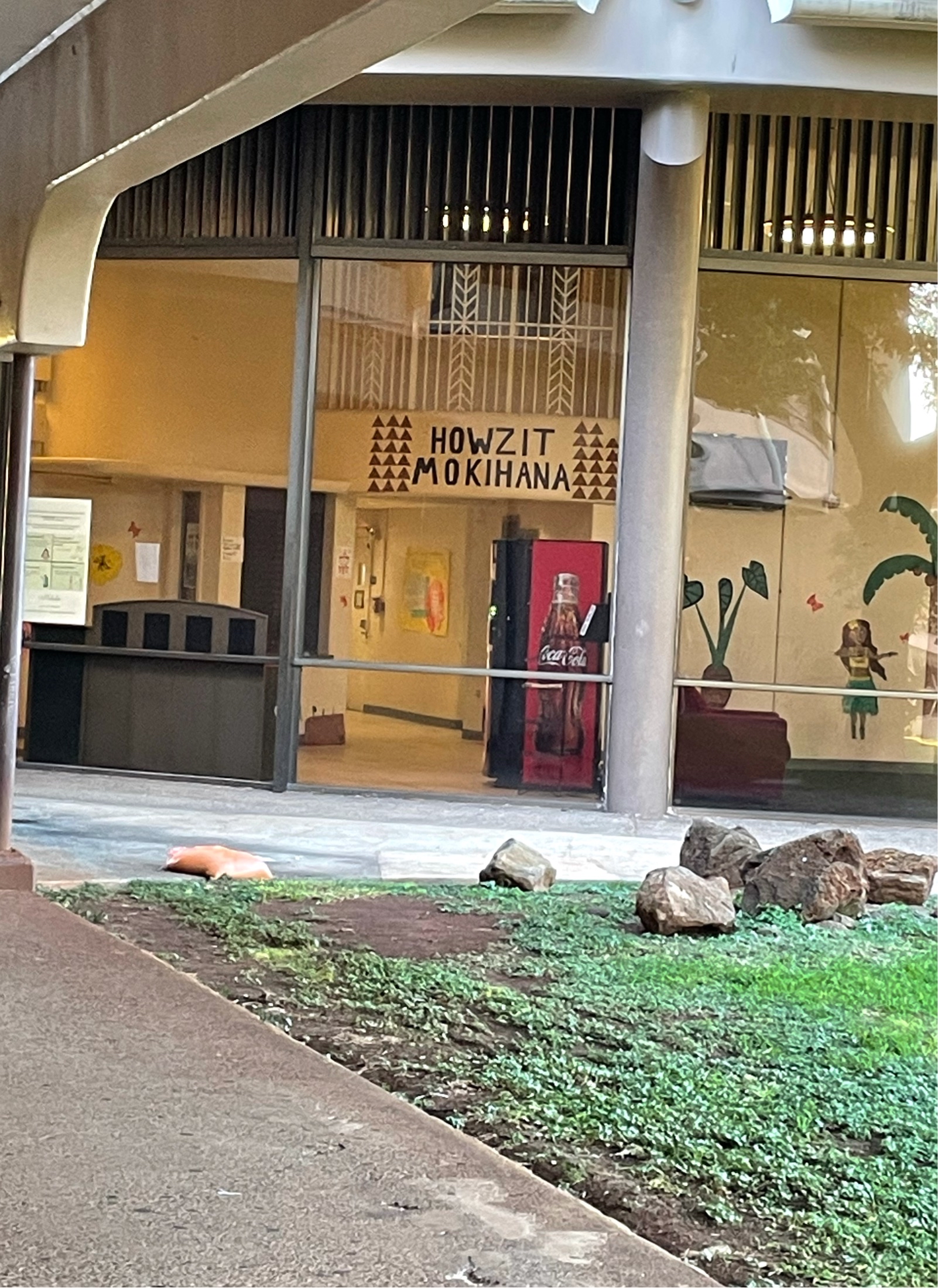
|
46539
|
|
United States
Honolulu
|
|
|
(SP)(check in #3) This photo has both Pidgin and Hawaiian in it, but I want to use it as a Pidgin photo. This is a photo of the common Pidgin greeting “howzit” permanently painted in the entrance way of a dormitory, in the domain of student life/education. Clearly this phrase was used to catch the attention and be understood by both Local students of students from out of state, since almost everyone is familiar with this phrase. It may have been used to make the dormitory feel more genuinely Hawaiian, and a more relaxing and easy-going place for students to live. It makes any student who walks in immediately feel like they are being greeted by a friend.
|
Multilingual Hawaiʻi
|
|
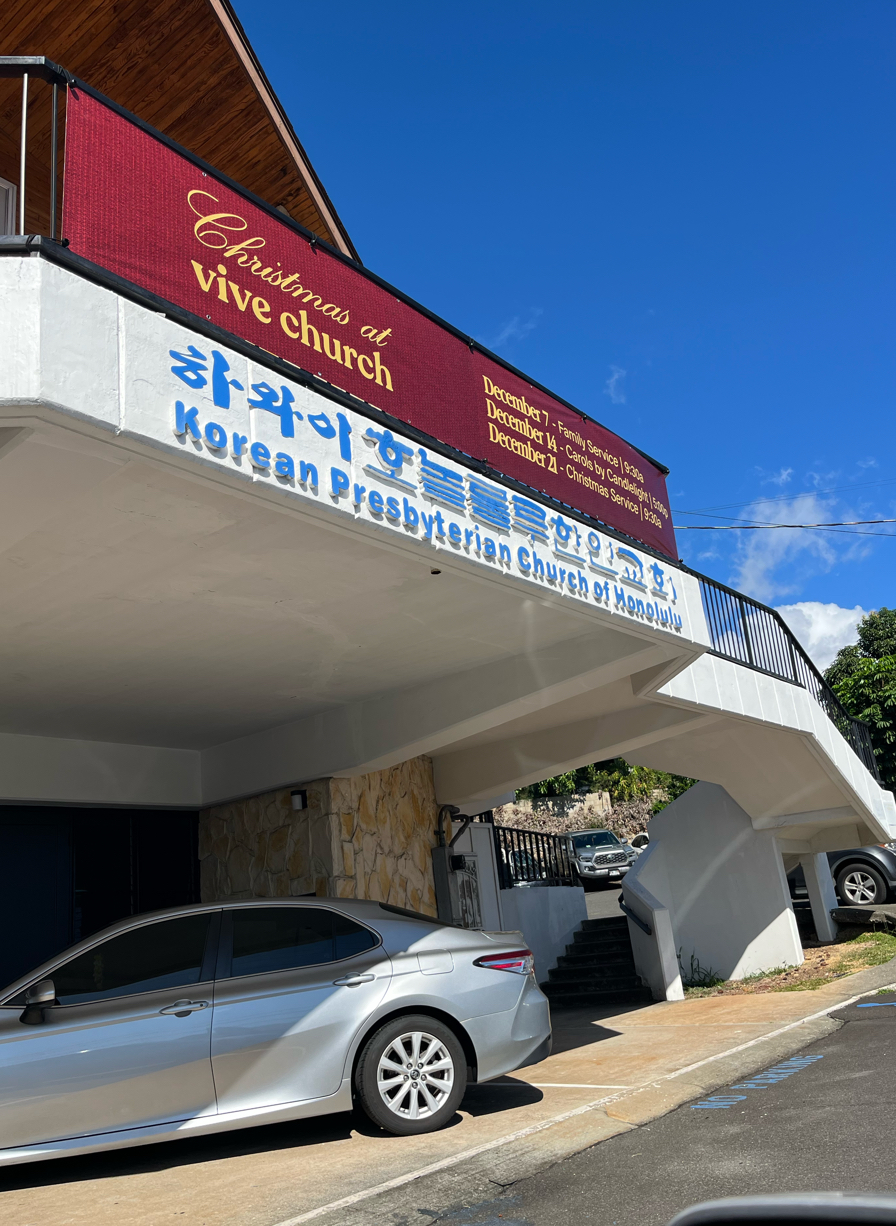
|
148940
|
Nicole P
|
United States
Honolulu
|
|
|
—
|
Multilingual Hawaiʻi
|
|

|
46028
|
|
United States
Honolulu
|
|
|
SU: Check up #2
- What languages are used on the sign?: The language that is used on this sign is Hawaiian.
- How are the languages presented?:
The word “Hele” is presented in big font in all capital letters in the color white. It is presented but because it is the name of the gas station.
- Who is the audience?:
The audience is is for the general public but I think it was mainly for locals.
- What is the domain?:
The domain is at a workplace (gas station).
- What is the sign trying to tell people?:
The word “Hele” means go in Hawaiian. So I think the gas station is named “Hele” because people go there to get gas so that they can go and continue on with their journey.
- Why is Hawaiian being used here?:
Hawaiian is being used here because it is appropriate being on Hawaiian lands. It also catches the attention of the locals and nonlocals that drive past this sign.
|
Multilingual Hawaiʻi
|
|
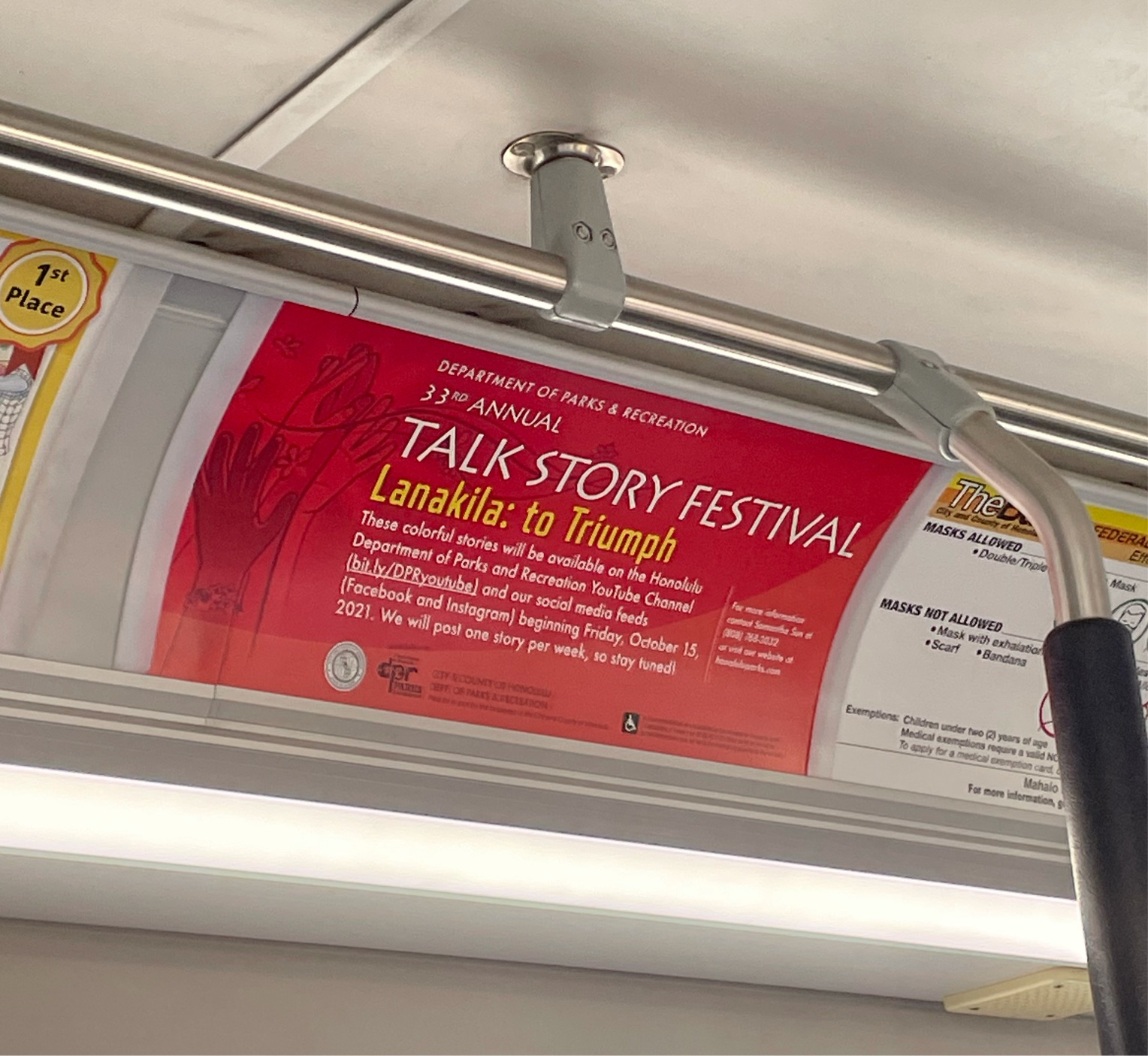
|
46540
|
|
United States
Honolulu
|
|
|
(SP)(check in #3) this photo has both Pidgin and English in it, but I want to use it as a Pidgin photo. This is a non-permanent advertisement found in a city bus in Honolulu, in the domain of transportation/advertising. The brightest, most eye catching section of the ad is in Pidgin (talk story). The Pidgin, when combined with the Hawaiian word and topic of the ad, was clearly made for Locals who understand Pidgin/Hawaiian and have an interest in Hawaiian cultural activities. English is in smaller letters with the instructions to access these stories, so that anyone, Local or non-local, will be able to access them. The topic of this poster is about working passionately to keep Hawaiian culture and story telling alive, hence the use of the Hawaiian word for triumph and the fiery red color.
|
Multilingual Hawaiʻi
|
|

|
148941
|
Nicole P
|
United States
Honolulu
|
|
|
—
|
Multilingual Hawaiʻi
|
|
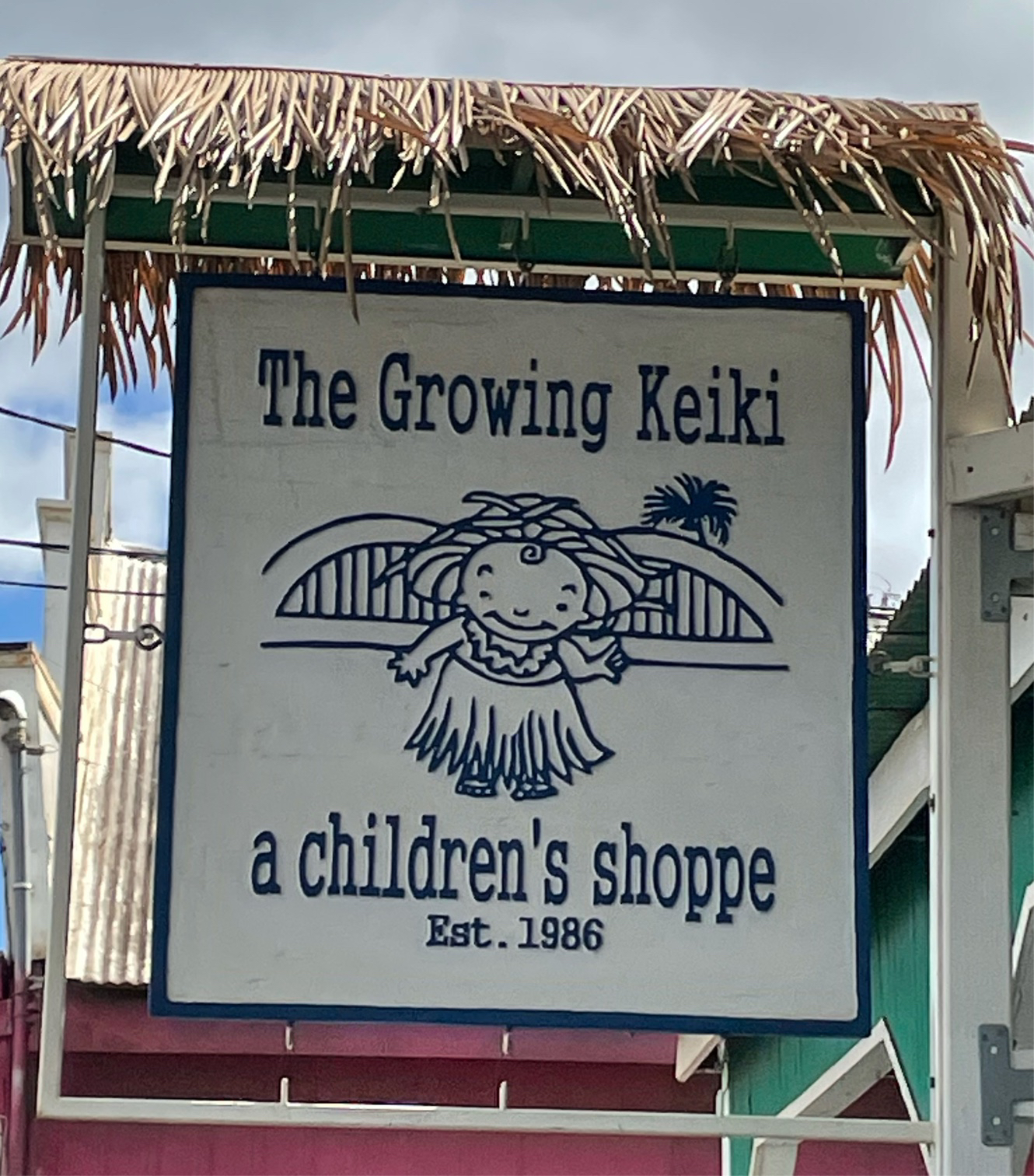
|
46541
|
|
United States
Haleiwa
|
|
|
(SP)(check in #3) this is a photo of a permanent wooden sign outside of a children’s clothing shop, in the domain of commodification. This store sells clothes branded around the Hawaiian aesthetic and language, so it makes sense that they used a Hawaiian word in their name, along with the aesthetic of straw hats, hula skirts, and leis. It is a pretty expensive store, so it is likely more popular among tourist in the area; they hang have uses Hawaiian in the name/on their sign to make the shop feel more authentically Hawaiian to tourists and Locals alike, though likely more towards tourists since they used a pretty well known, easy to figure out Hawaiian word. Tourists may see that sign and want to buy clothes to make their children feel less like normal kids and more like special little “keiki” who got to visit Hawai'i.
|
Multilingual Hawaiʻi
|
|
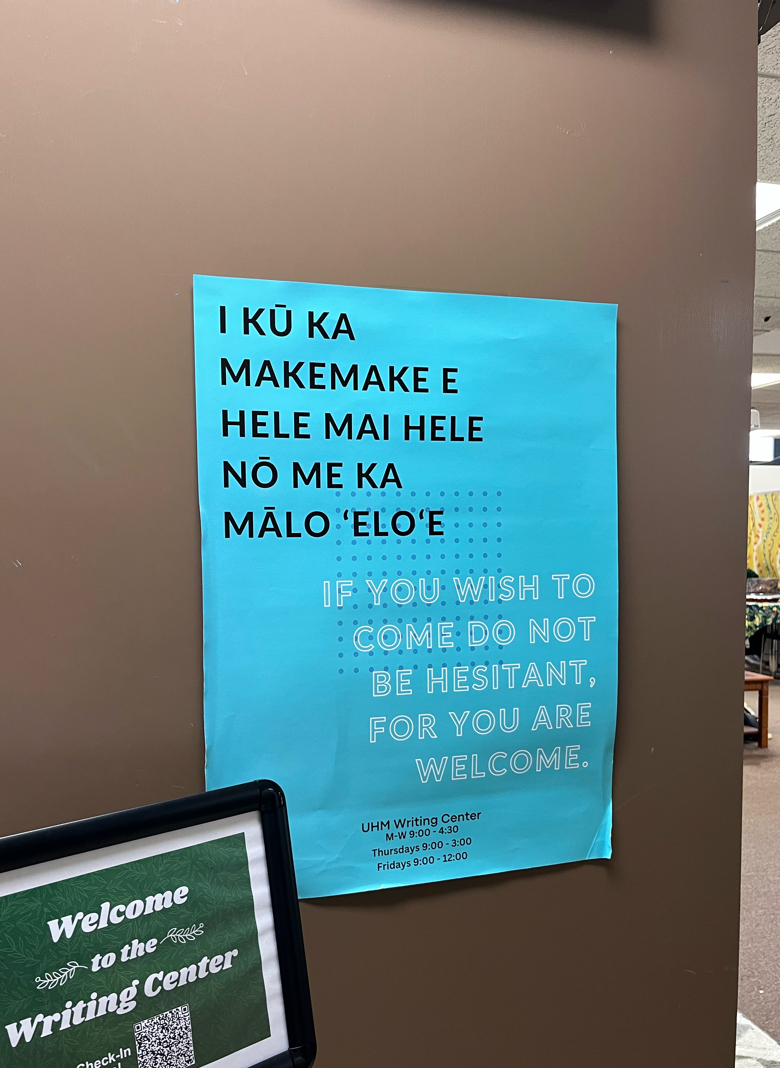
|
148942
|
Nicole P
|
United States
Honolulu
|
|
|
—
|
Multilingual Hawaiʻi
|
|
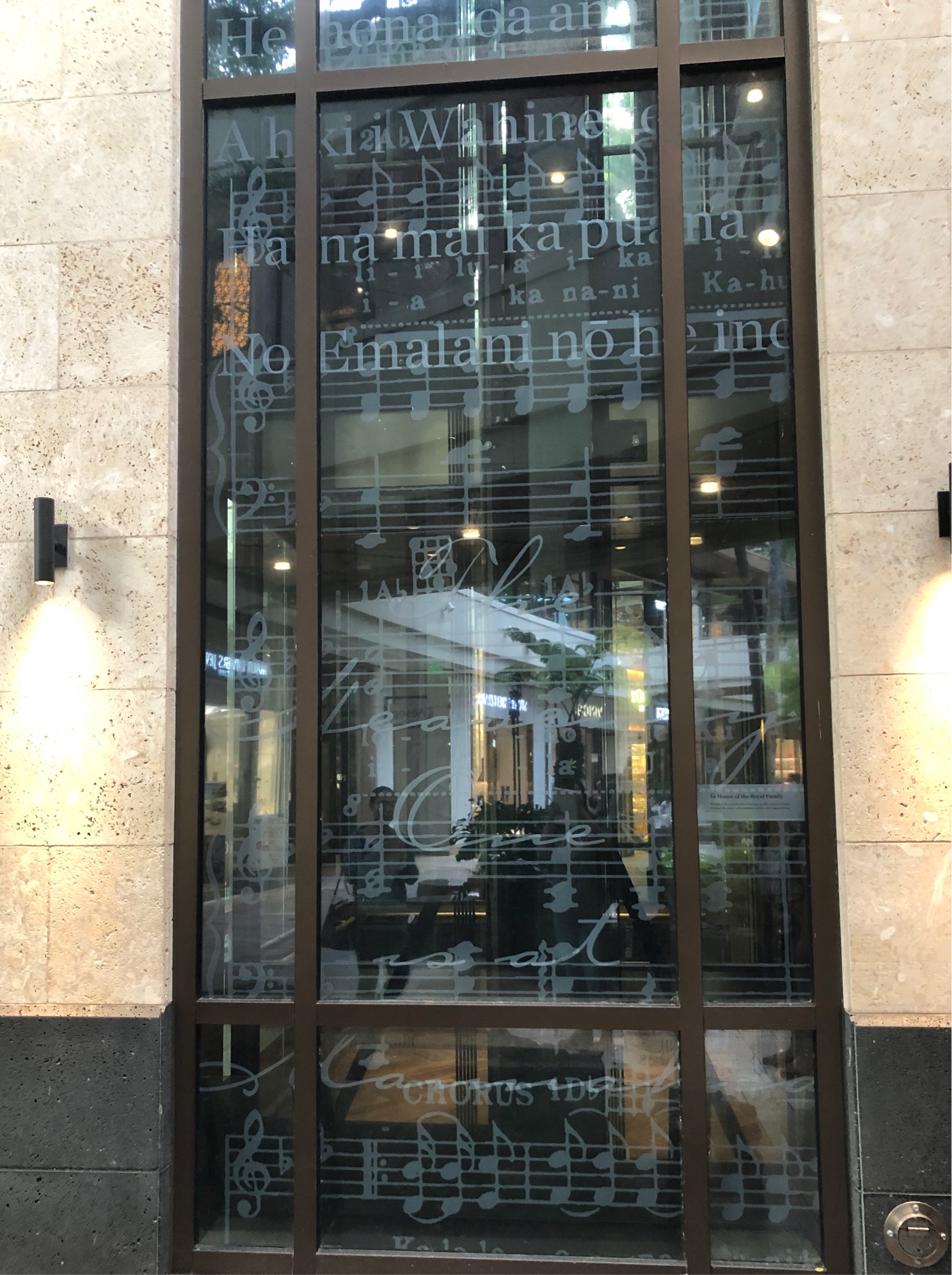
|
27086
|
|
United States
Honolulu
|
|
|
—
|
Multilingual Hawaiʻi
|
|
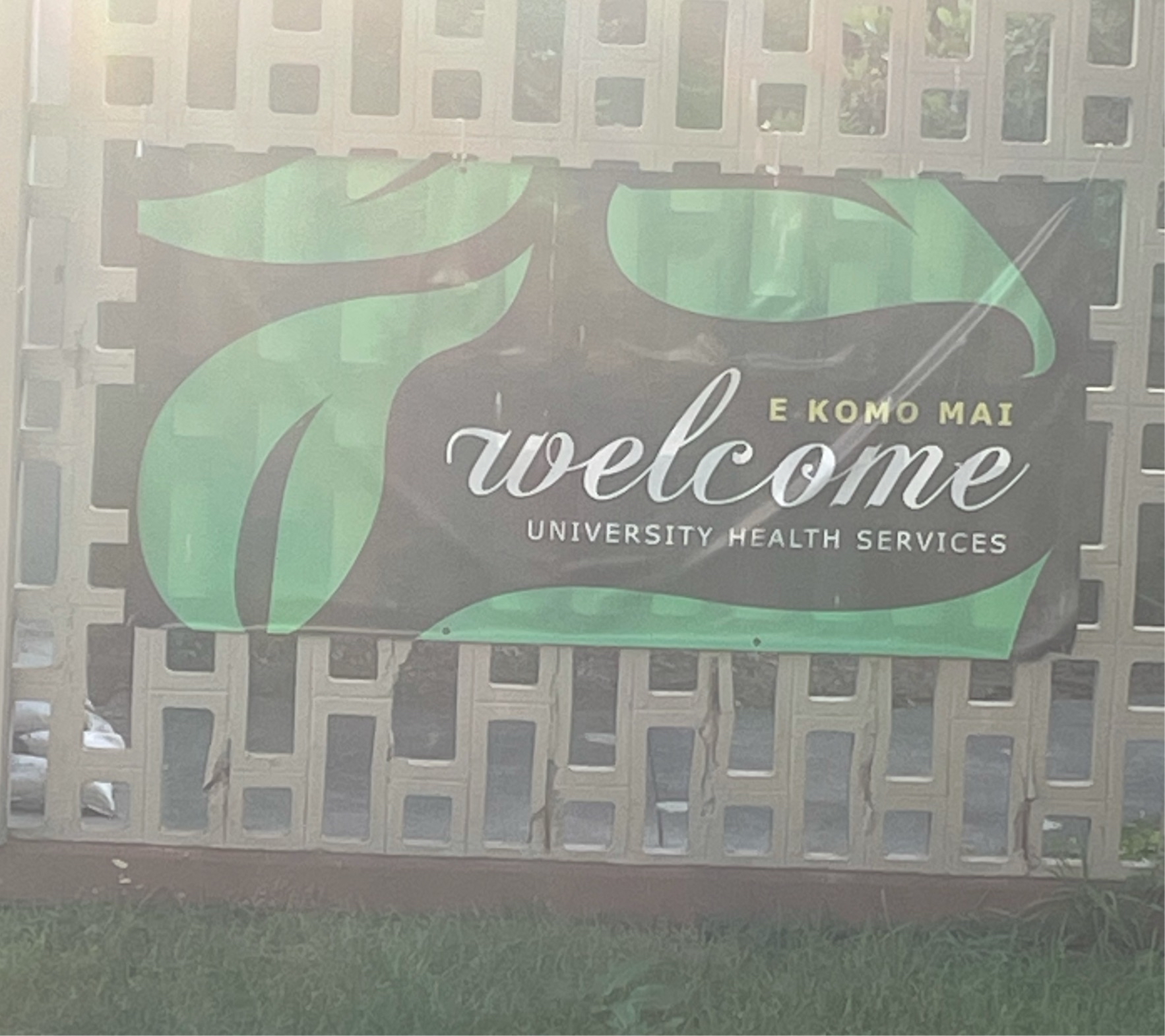
|
46542
|
|
United States
Honolulu
|
|
|
(SP)(check in #3) this is a photo of a semi permanent canvas sign outside of a university building on the UH Manoa campus, in the domain of student life/education/health services. Most of the sign is in big, clear English, likely so that any one on campus, no matter where they’re from, is able to understand the sign and easily access these health services. The Hawaiian phrase for welcome (e komo mai) is in smaller letters compared to the English welcome, as if it was added as an after thought—it may have been included as a part of UH Manoa’s ongoing efforts to reconnect itself with traditional Hawaiian culture and language, and to make itself feel a bit more genuine. It may help in catching the eyes of Local students who speak Hawaiian or are familiar with this phrase, but it is clearly not the main focus of the poster and is easy to miss.
|
Multilingual Hawaiʻi
|
|
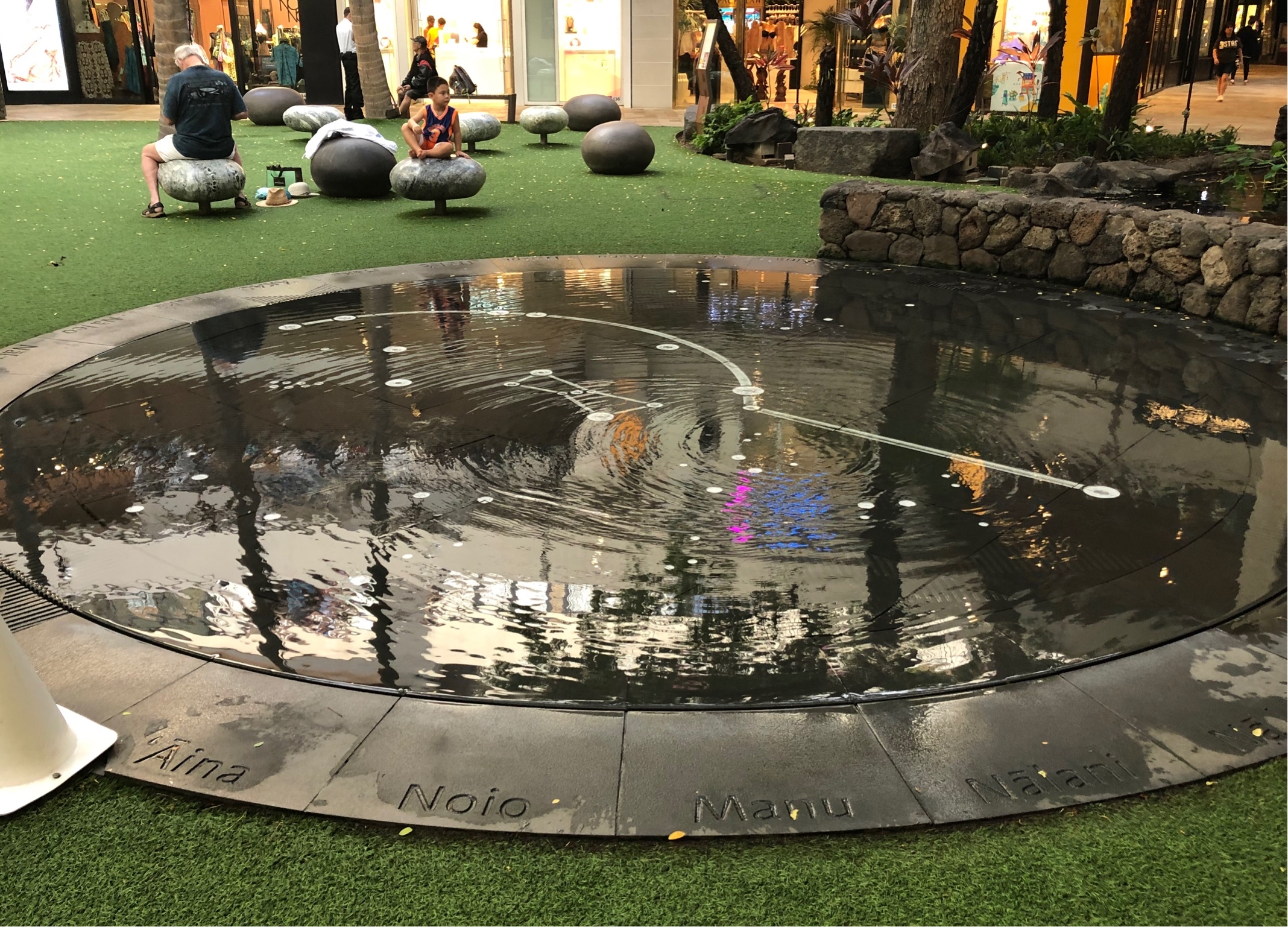
|
27087
|
|
United States
Honolulu
|
|
|
—
|
Multilingual Hawaiʻi
|
|
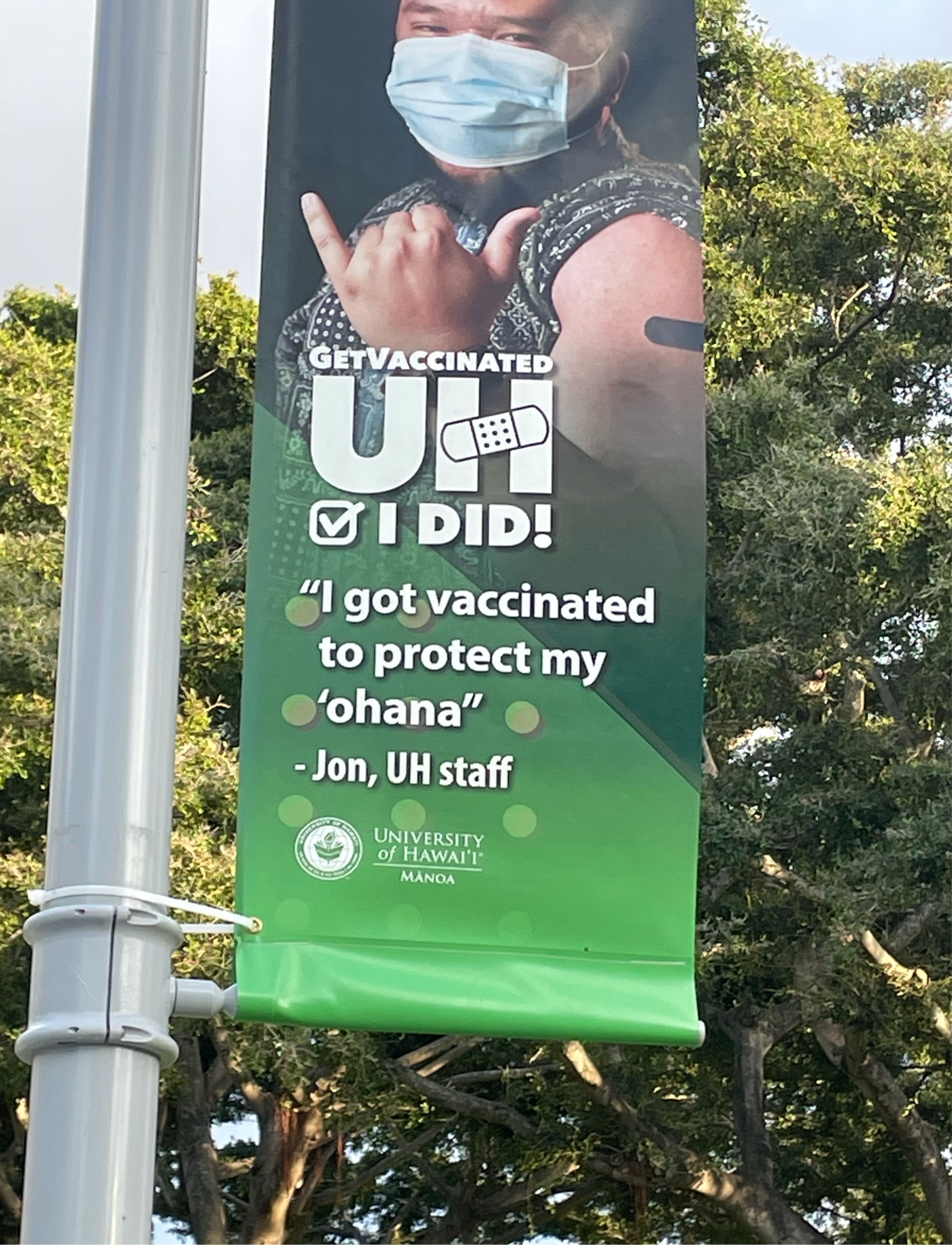
|
46543
|
|
United States
Honolulu
|
|
|
(SP)(check in #3) This is a semi permanent canvas sign found on the UH Manoa campus, in the domain of student life/education/public health. It contains only one Hawaiian word, 'ohana (family), which is seamlessly incorporated into an English sentence. Though this word is extremely well known and likely to be understood by students from outside Hawai'i, the use of this word, when combined with the picture of a UH staff member who looks either native Hawaiian or at least Local & racially ambiguous, is meant to tug at the heart strings of Local students. They may see the word 'ohana and immediately think of their own unique Local family, and this may encourage those who haven’t yet to go and get vaccinated.
|
Multilingual Hawaiʻi
|
|
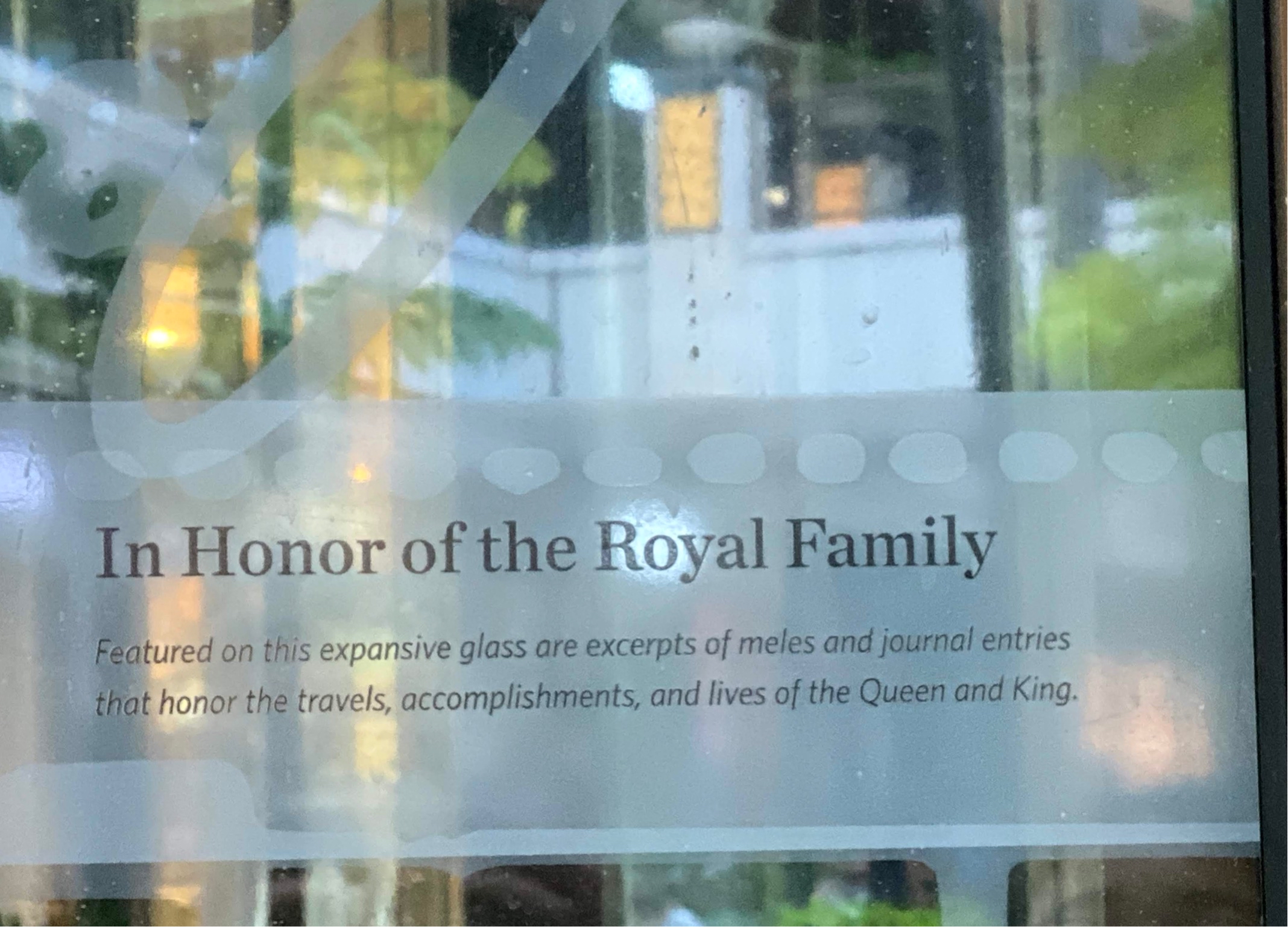
|
27088
|
|
United States
Honolulu
|
|
|
—
|
Multilingual Hawaiʻi
|
|